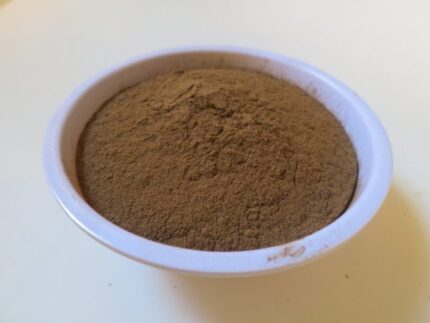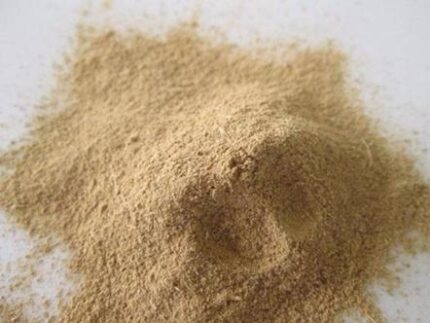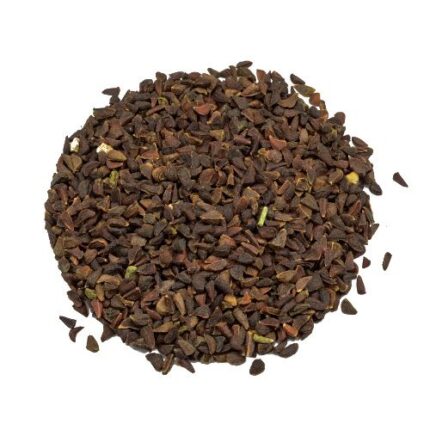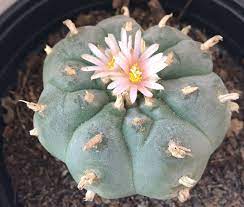Ayahuasca Powder
Ayahuasca Tea
Changa DMT
Ibogaine
Mimosa Hostilis
Peyote Cactus
For centuries, cultures around the world have used a variety of plants and herbs for their psychoactive effects as well as medicinal uses. When smoked, these plants can produce altered consciousness, relaxation, euphoria, and even hallucinations. Many of these are well known and widely used, while others are less well known and shrouded in mystery and cultural importance.
Smokable herbs with psychoactive properties offer a more natural alternative to substances such as tobacco, alcohol, and recreational drugs. Understanding the role of these herbs in traditional and modern contexts, from ritual use to recreational use, offers insight into the deep connection between nature and spirit. In this article, we will look at some common psychoactive smokable herbs, their effects, and how they are traditionally used or enjoyed today.
What are psychoactive smokable herbs?
Psychoactive smokable herbs are plants that affect the mind and body when burned or inhaled. The active ingredients found in these herbs produce a variety of effects: B. stimulating the mind, relaxing the body, or altering perception of reality. These herbs can be smoked alone or mixed with other substances to achieve different experiences. Some psychoactive herbs contain compounds that produce mild effects, while others can cause more profound changes in consciousness. These herbs are often sought after for their ability to promote relaxation, stress relief, creativity, and mood elevation.
Popular Psychoactive Smokeable Herbs
Cannabis (Cannabis sativa, Cannabis indica)
Effects: Cannabis is perhaps the best-known psychoactive herb. Smoking cannabis produces a variety of effects, including relaxation, euphoria, altered perception of time, and heightened sensory experiences. The plant contains compounds called cannabinoids (such as THC and CBD), which interact with the body's endocannabinoid system, affecting mood, appetite, pain, and more. Traditional Uses: Kratom has been used for centuries by people in Thailand and Malaysia to increase physical endurance, relieve pain, and improve mood. Traditionally chewed or brewed into tea, smoking is becoming a more common method of consumption.
Note: Kratom can help improve mood and relieve pain, but it can also be addictive if used excessively. It is important to use with caution and moderation.
Blue Lotus (Nymphaea caerulea)
Effects: Blue Lotus is a sacred plant of ancient Egypt known for its psychoactive properties. Smoking the flowers induces a relaxed, slightly euphoric, dream-like state. The plant contains apomorphine and nuciferine, compounds that are said to have mild sedative and mood-enhancing properties.
Traditional Uses: Historically, Blue Lotus was used in Egypt in religious and spiritual ceremonies, often in conjunction with creating a calm, meditative, altered state of consciousness. It was also used for its aphrodisiac effects.
Note: Blue Lotus is often used for relaxation and mild euphoria, but it is important to note that its effects are generally milder compared to more potent psychoactive plants. It is legal in many parts of the world, but there may be restrictions in some areas.
Damiana (Turnera diffusa)
Effects: Damiana is a small shrub native to Mexico and Central America that is often used for its relaxing and mood-elevating effects. Smoking it produces a feeling of euphoria, relaxation, and increased sensuality. Some users report increased creativity and improved mental clarity.
Traditional Uses: Damiana has long been used in indigenous cultures as an aphrodisiac and as a treatment for a variety of physical and mental ailments. In the modern world, it is often consumed in teas or used as a smokable herb.
Note: Damiana is considered safe when used in moderation, but its effects are usually milder than other psychoactive plants. It can be used as a gentle mood enhancer or for calming purposes.
Traditional Uses: Ancient cultures used wormwood not only for its medicinal properties, but also in dream-related rituals. It was often smoked or drunk in tea to promote vivid dreams and stimulate the mind. Wild dagga (Leonotis leonurus)
Effects: Wild dagga, also known as lion's tail, is a plant native to South Africa. When smoked, it has a mild, euphoric and calming effect, and is sometimes compared to cannabis. The active ingredient leonurine is said to interact with receptors in the brain, producing a mild, relaxing high.
Traditional Uses: Indigenous cultures in South Africa have used wild dagga for centuries for its medicinal and psychoactive effects. It is used to relieve stress, improve mood, and in some cases as a mild sedative. Potential Benefits and Risks of Smoking Psychoactive Herbs
Benefits:
Stress relief and relaxation: Many psychoactive herbs are used for their calming and anti-anxiety properties. Herbs such as damiana, wild dagga, and mugwort are particularly known for their relaxing effects, helping to manage daily stress and promote restful sleep.
Health Risks: Smoking any substance, including herbs, can irritate the lungs and airways. While smoking herbal substances may feel natural, it can pose similar risks to smoking tobacco, including long-term damage to lung health.
Legality: Not all psychoactive herbs are legal everywhere. Before purchasing or using these herbs, it is important to understand the laws regarding the use of these herbs in your area.
Interactions with other substances: Some psychoactive herbs may interact with medications and other substances. Always consult with your doctor before combining these herbs with medications or other recreational substances.
Conclusion
Psychoactive smokable herbs offer a fascinating way to explore altered states of consciousness and connect with nature's powerful plants. From the calming effects of mugwort to the euphoric effects of kratom, these herbs offer a natural alternative to traditional mind-altering substances. However, as with any psychoactive substance, it is important to approach them with respect and caution. Understanding their effects, potential benefits, and risks will help you make informed decisions about their use. Whether you are seeking relaxation, spiritual connection, or creativity, the world of psychoactive smokable herbs offers a rich and diverse experience.






